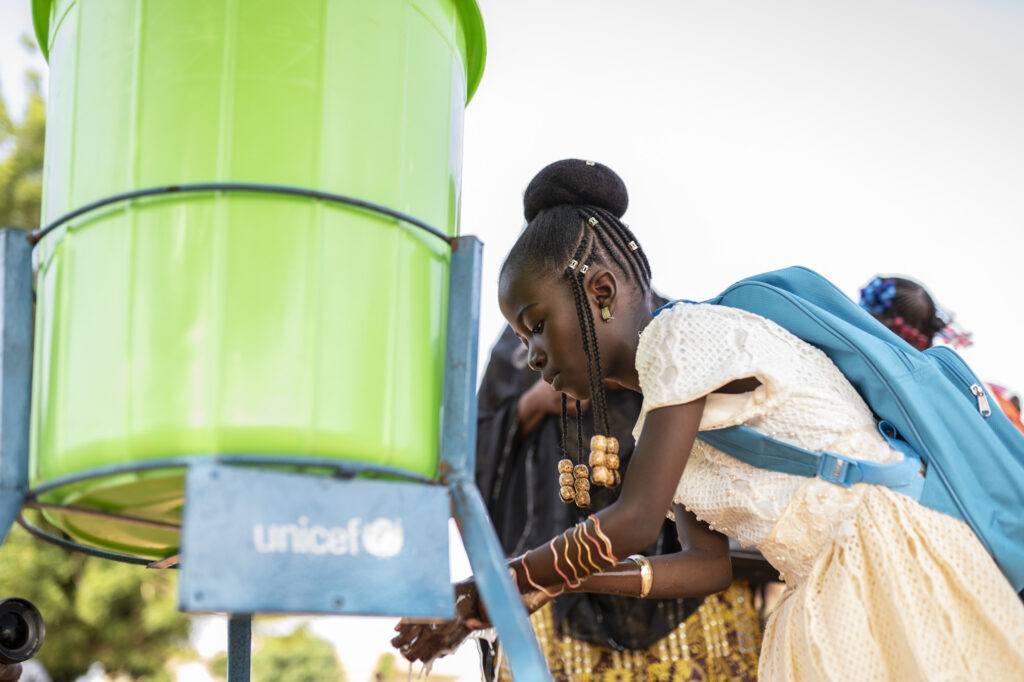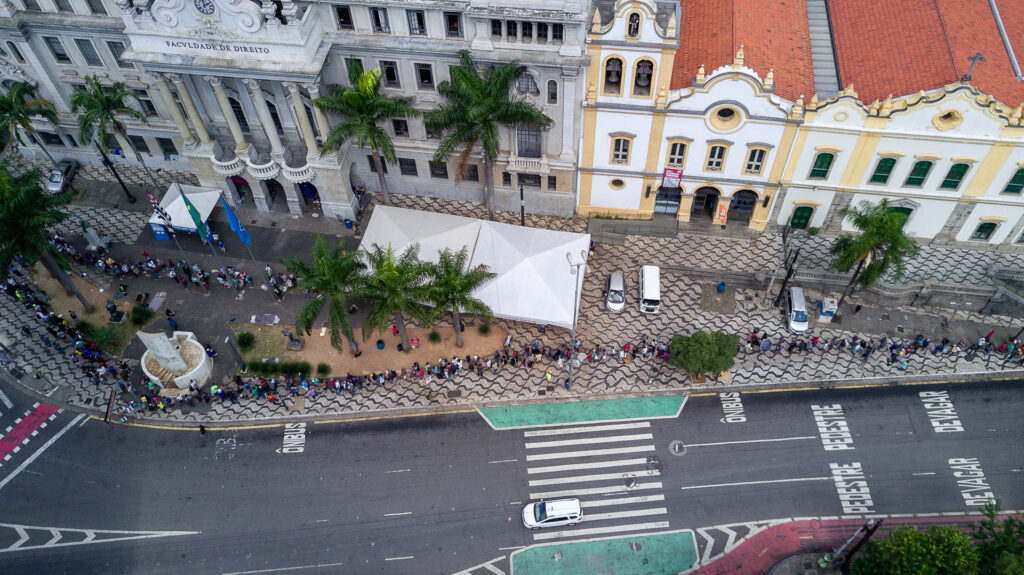In many ways, 2020 became a remarkable year for the Grundfos Foundation. To mark Grundfos’ 75th anniversary, the Foundation decided to expand the framework for donations to DKK 200 million or approximately 1 percent of Grundfos’ financial result in 2019. At the same time, the COVID-19 pandemic struck us all, and it became clear that business as usual was no longer an option.
“Early on, it became painfully clear to us that the pandemic would have a significant impact on the Foundation’s three donation areas. Over the year, we have decided to fund various corona-related research projects, where medical research is normally an area we would expect the large Danish medico-foundations to deal with. Within water, we have donated an extraordinarily large amount of money to humanitarian aid and installed thousands of hand washing stations all over the world. Finally, we have ‘globalised’ the Foundation’s inclusion area by establishing a community grant which allows Grundfos companies all over the world to engage locally,” says Executive Director Kim Nøhr Skibsted.
The complete list of donations will be published in March along with the Foundation’s annual review and financial report. Below, you can find a few highlights.
DKK 65 million for research and learning
Within Research and learning, one particular project, Sustainable Lake Stewardship, has received significant funding this year. The mission-driven research project brings together several Danish universities in a shared goal of finding a gentle and sustainable method of removing harmful nutrients from our lakes and reuse them elsewhere. Phase 1 received 6.1m DKK in funding and phase 2 has just been granted 14.4m DKK for further development and addition of more partners.
Other noticeable research projects are: a grant to Professor Mads Albertsen, Aalborg University, enabling the reconfiguration of the existing laboratory infrastructure of the Microflora Danica project to become the Danish centre for sequencing coronavirus and an integrated part of the Danish Covid-19 Genome Consortium; Living Systematic Review monitors and evaluates medical research publications regarding coronavirus to identify the most effective treatment methods; and funding of test production of the CoRescue emergency ventilator.
DKK 90 million for water and sustainable development
Within Water and sustainable development, a record high 43.3m DKK have been given to humanitarian aid. Globally, COVID-19 has added an extra threat to vulnerable children and families already suffering from existing humanitarian crises (hunger, war, poverty etc.). Most of the funds have been channeled through our partners, but we have also made donations to non-partners such as Doctors without Borders (MSF), International Committee of the Red Cross (ICRC), Norwegian Refugee Council (NRC), Human Needs Project and World Vision.
Other large grants are a new flagship project in western Ethiopia, almost 7m DKK for expanding our programme in India where we have now reached 235 solar driven water systems in remote rural communities, World Water Week Communications Initiative, and continuations of our programmes in Togo, Burundi, Kenya and Tanzania.
Our support for initiatives like UNICEF’s E365 emergency reserve and an extraordinary grant of 5m DKK for disease prevention through water, sanitation and hygiene (WASH), has provided lifesaving support for some of the world’s most vulnerabel children adn their families.
“When DR Congo’s eleventh Ebola outbreak emerged in the Equateur province in June 2020, alongside a growing threat of both measles and COVID-19, UNICEF launched a swift emergency response: focusing on community engagement to protect people from the disease via water, hygiene and sanitation (WASH) activities,” explains Karen Hækkerup, Secretary General, UNICEF Denmark.
40 million for inclusion and community engagement
The amount of donations for this area has increased significantly in 2020. We’ve established the Poul Due Jensens Community Engagement Grant which allows Grundfos companies all over the world to engage locally. Of the financial framework of 20m DKK we were able to award over 15 million to projects and initiatives, primarily outside Denmark.
“The new Community Grant has to a great extent been used to help mitigate the economic and social consequences of lockdowns in countries across the globe. We will of course continue the initiative in 2021 and hope that even more Grundfos companies will take advantage of it and establish more long-lived local partnerships,” says Executive Director Kim Nøhr Skibsted.
In Denmark, local causes have also received attention. We’ve started a new collaboration with two municipalities and DRC Integration to develop and document a new social investment model, and Danish Red Cross has received a grant for digital outreach to vulnerable citizens. Finally, a couple of very local projects have been awarded grants: a youth café/meeting place in Bjerringbro and the Tange Energy Museum.



